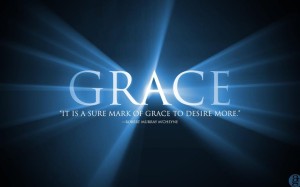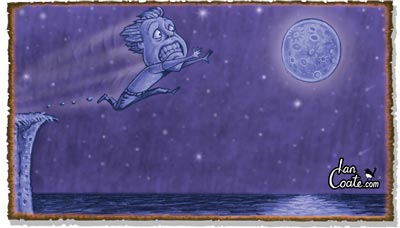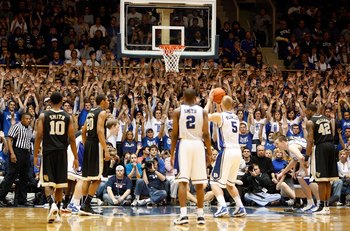 This is just brilliant! I so wish Christians could understand this.
This is just brilliant! I so wish Christians could understand this.
In an article entitled, “We Don’t Find Grace, Grace Finds Us” Tullian Tchividjian writes:
I love the introduction to Sally Lloyd-Jones’ Jesus Storybook Bible. A piece of it goes like this:
“Other people think the Bible is a book of heroes, showing you people you should copy. The Bible does have some heroes in it, but…most of the people in the Bible aren’t heroes at all. They make some big mistakes (sometimes on purpose). They get afraid and run away. At times they are downright mean. No, the Bible isn’t a book of rules, or a book of heroes. The Bible is most of all a story. It’s an adventure story about a young Hero who comes from a far country to win back his lost treasure. It’s a love story about a brave Prince who leaves his palace, his throne – everything – to rescue the one he loves.”
She’s right. I think that most people, when they read the Bible (and especially when they read the Old Testament), read it as a catalog of heroes (on the one hand) and cautionary tales (on the other). For instance, don’t be like Cain — he killed his brother in a fit of jealousy – but do be like Noah: God asked him to do something crazy, and he had the faith to follow through.
Running counter to this idea of Bible-as-hero-catalog, I find that some of the best news in the Bible is that God incessantly comes to the down-trodden, broken, and non-heroic characters. It’s good news because it means he comes to people like me — and like you. It’s very interesting to note that even the characters we think have spotless records (like Noah) need the direct intervention of the true “lamb without blemish.”
Noah is often presented to us as the first character in the Bible really worthy of emulation. Adam? Sinner. Eve? Sinner. Cain? Big sinner! But Noah? Finally, someone we can set our sights on, someone we can shape our lives after, right? This is why so many Sunday School lessons handle the story of Noah like this: “Remember, you can believe what God says! Just like Noah! You too can stand up to unrighteousness and wickedness in our world like Noah did. Don’t be like the bad people who mocked Noah. Be like Noah.”
I understand why many would read this account in this way. After all, doesn’t the Bible say that Noah “was a righteous man, blameless among the people of his time, and he walked faithfully with God” (Genesis 6:9)? Pretty incontrovertible, right?
Not so fast. Continue reading


